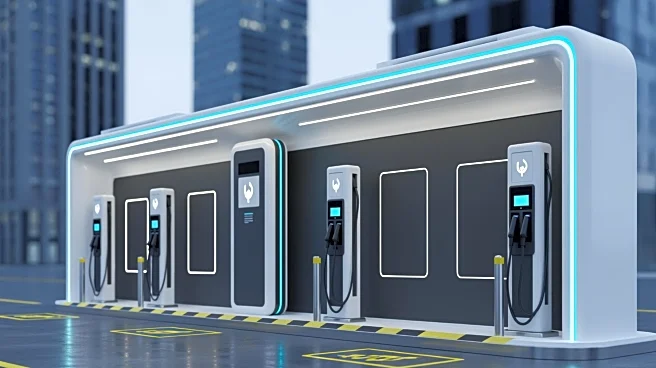What's Happening?
Hyundai and Kia have experienced a significant drop in their electric vehicle sales in October following the expiration of the $7,500 U.S. EV tax credit. Hyundai's IONIQ 5 sales fell to 1,642 units from
4,498 in October 2024 and 8,408 in September 2025. Similarly, the IONIQ 6 saw a decrease to 398 units from 837 in October 2024 and 814 in September 2025. Kia's EV6 sales dropped to 508 units from 1,732 in October 2024 and 2,116 in September 2025, while the EV9 sales decreased to 666 units from 1,941 in October 2024 and 3,094 in September 2025. The decline is attributed to consumers rushing to purchase electric vehicles before the tax credit expired, leading to fewer buyers in the market in October.
Why It's Important?
The expiration of the EV tax credit has had a noticeable impact on the U.S. electric vehicle market, affecting major automakers like Hyundai and Kia. This decline in sales could slow the adoption of electric vehicles, which are crucial for reducing carbon emissions and combating climate change. Automakers may need to adjust their strategies to maintain sales momentum without the incentive. The situation highlights the importance of government incentives in driving consumer behavior and supporting the transition to sustainable transportation.
What's Next?
As the market adjusts to the absence of the tax credit, automakers may explore alternative strategies to attract buyers, such as offering competitive pricing or enhancing vehicle features. The industry will be watching closely to see if sales recover in the coming months. Policymakers might also consider new incentives to support the EV market and encourage sustainable practices.












